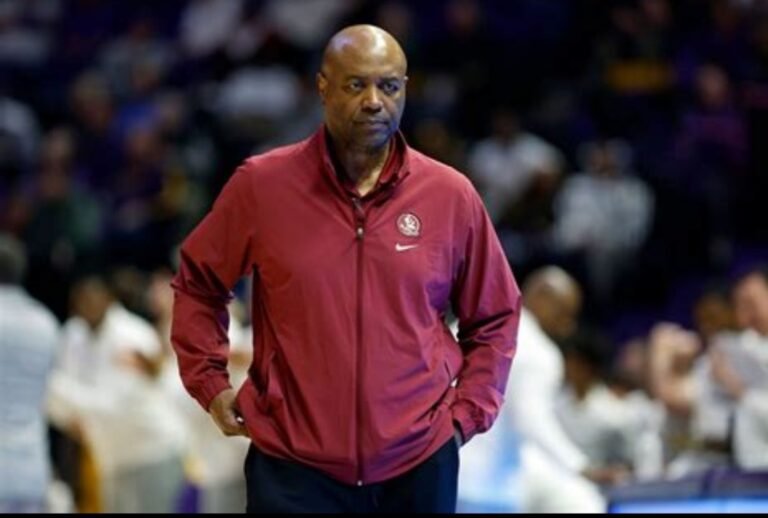In a significant legal development, six former Florida State University (FSU) basketball players have filed a lawsuit against head coach Leonard Hamilton, alleging a breach of promise regarding Name, Image, and Likeness (NIL) compensation.
The lawsuit, submitted in Leon County Circuit Court, contends that Coach Hamilton failed to fulfill a commitment to secure $250,000 in NIL deals for each player, totaling $1.5 million.
Background of the Allegations
The plaintiffs—Darin Green Jr., De’Ante Green, Cam’Ron Fletcher, Josh Nickelberry, Primo Spears, and Jalen Warley—assert that during their recruitment and tenure at FSU, Coach Hamilton assured them of substantial NIL opportunities. These promises were reportedly pivotal in their decisions to join or remain with the Seminoles. However, the players claim that the promised compensation never materialized, leading to financial and personal hardships.
The lawsuit details instances where the players, frustrated by the unmet promises, considered collective action. Notably, they allegedly boycotted a practice session and contemplated sitting out a high-profile game against Duke University. According to the complaint, Coach Hamilton persuaded them to participate by reiterating his commitment to secure the promised funds, assurances that the players now claim were never honored.
University’s Response
In response to the lawsuit, Florida State University has expressed support for Coach Hamilton. The university has initiated an internal review to investigate the allegations and assess the circumstances surrounding the purported NIL agreements. In an official statement, FSU emphasized its dedication to upholding compliance and ethical standards in all matters related to NIL, while also highlighting Coach Hamilton’s long-standing service and reputation within the institution.
Implications for College Athletics
This lawsuit underscores the complexities and challenges that have emerged since the NCAA’s adoption of NIL policies, which allow collegiate athletes to profit from their personal brands. While these policies were designed to provide athletes with new revenue streams, they have also introduced potential conflicts, especially concerning the roles and responsibilities of coaching staff in facilitating such deals.
The case against Coach Hamilton is particularly noteworthy as it appears to be one of the first instances where a head coach is being sued over alleged unfulfilled NIL promises. This situation may set a precedent for how similar disputes are handled in the future and could prompt universities nationwide to reevaluate their approaches to NIL facilitation and compliance.
Coach Hamilton’s Tenure and Future
Leonard Hamilton, aged 76, has been at the helm of FSU’s basketball program since the 2002-2003 season, earning respect for his contributions to the sport and the development of his players. The current legal battle, however, casts a shadow over his distinguished career. As he is in the final year of his contract, the outcome of this lawsuit could influence decisions regarding his future with the program.
The situation also raises broader questions about the evolving landscape of college athletics, where traditional coaching roles are increasingly intersecting with the business aspects of athlete representation and compensation. As the NIL environment continues to develop, coaches and universities may need to adapt to ensure that promises made during recruitment are transparent, feasible, and legally sound.
Conclusion
The lawsuit filed by the former FSU players against Coach Leonard Hamilton highlights the potential pitfalls in the nascent NIL era of college sports. As this case progresses, it will likely serve as a critical reference point for how similar disputes are addressed moving forward, emphasizing the need for clear guidelines and communication between athletes, coaches, and institutions regarding NIL agreements.



